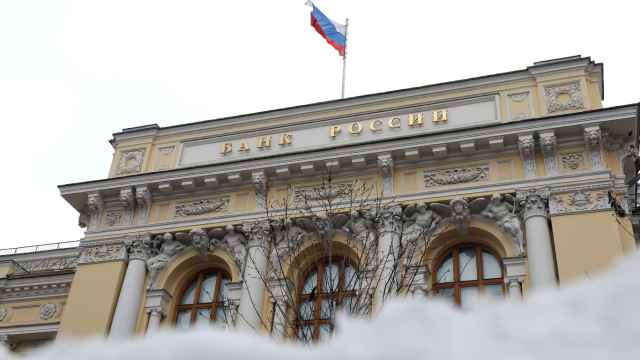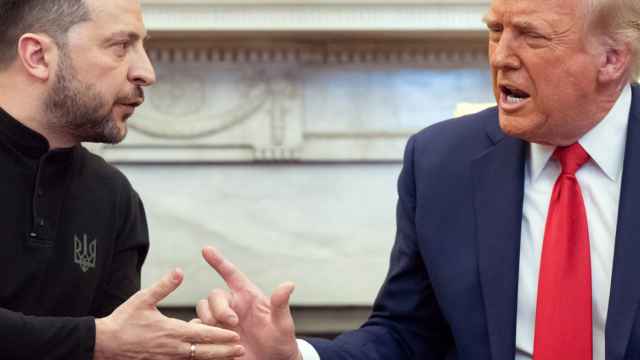State Duma deputies from United Russia took offense with Moskovsky Komsomolets newspaper last month for referring to them as "political prostitutes." Ideally, politicians should never take offense with the way they are portrayed by the media, but these Duma deputies are attempting to wage a war with the newspaper and its editor-in-chief, Pavel Gusev. However, they are fighting a losing battle because the editorial policy of any commercial publication is determined less by its editors and journalists and more by the political views of its readers.
Any newspaper that wants to gain a broad readership in Moscow needs to take an anti-Putin and anti-United Russia stance. That has less to do with economics and politics than it does with simple arithmetic. Even the inflated official figures indicate that only 46 percent of Muscovites voted for Vladimir Putin in the March 2012 presidential election, and by most counts, United Russia received only between 25 percent and 35 percent of the Moscow vote in the December 2011 Duma elections.
 Konstantin Sonin
Konstantin SoninIf a newspaper wants to be profitable, it must publish articles its readers will like and select information that confirms readers' views. Otherwise, it will lose subscribers, newsstand sales and advertisers. After all, what company would advertise in a publication that nobody reads?
A large readership is also the basis of any newspaper's political influence, and it would be senseless to promote this or that agenda if nobody would read the material anyway. Moskovsky Komsomolets is extremely popular in Moscow precisely because the political views of its leading commentators match those held by the majority of Muscovites.
Thus, the current conflict between the Duma and the newspaper is, to a large extent, a direct consequence of the massive electoral fraud in the 2011 Duma elections. Many United Russia deputies do not represent their constituencies and occupy parliamentary seats that should rightfully belong to others. By contrast, Moskovsky Komsomolets does represent the majority of Muscovites, and its loyal readership is based on market forces and mechanisms that are practically impossible to falsify or manipulate.
Those who would use the media for their own propaganda purposes find themselves in a trap. By limiting the freedom of journalists and commentators, they automatically reduce the readership and the potential audience for their own propaganda. For example, the more progressive segment of society long ago stopped watching the news on state-controlled television. The same is true of print publications where Kremlin-friendly editors have been installed; everything they published is subsequently considered suspect.
With its enormous resources, the Kremlin could exercise total control over all forms of media, including Internet publications. But as events during the final years of the Soviet Union demonstrated, such a policy would not lead to the desired result. Despite holding complete control over the media in the 1980s, the Soviet authorities were unable to greatly influence the thinking of the people. By that time, people simply stopped believing newspapers and television news. Today's Duma deputies would therefore be well advised to halt their war against Moskovsky Komsomolets. After all, continuing the battle will not improve the way most Muscovites perceive them.
Konstantin Sonin is a professor at the New Economic School in Moscow and a columnist for Vedomosti.
A Message from The Moscow Times:
Dear readers,
We are facing unprecedented challenges. Russia's Prosecutor General's Office has designated The Moscow Times as an "undesirable" organization, criminalizing our work and putting our staff at risk of prosecution. This follows our earlier unjust labeling as a "foreign agent."
These actions are direct attempts to silence independent journalism in Russia. The authorities claim our work "discredits the decisions of the Russian leadership." We see things differently: we strive to provide accurate, unbiased reporting on Russia.
We, the journalists of The Moscow Times, refuse to be silenced. But to continue our work, we need your help.
Your support, no matter how small, makes a world of difference. If you can, please support us monthly starting from just $2. It's quick to set up, and every contribution makes a significant impact.
By supporting The Moscow Times, you're defending open, independent journalism in the face of repression. Thank you for standing with us.
Remind me later.





